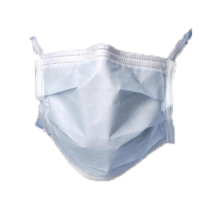The anonymous story
0

0

The anonymous story
Five years ago, a man who is married with two sons, one down the road and another in
New York, was diagnosed with oral cancer. He was a solicitor with his own small practice
and a rather average medical history.
He was also an alcoholic.
"I have not drunk for many a year. I'm still an alky. I was a functioning one until it caught up with me and I went into rehab."
He now works a couple of days a week in a crisis intervention centre for active drinkers and users whose lives are in danger from their addictions. When some are eventually detoxed, they then go on to rehab.
The 71-year-old is an active member of AA and his work currently keeps him grounded, and is the reason for his anonymity.
He first noticed a painless lump on the side of his neck, to which he then sought advise and was told it was a swollen saliva gland. His GP then told him he had a tooth abscess. Even after antibiotics he still saw no improvement, so took matters into his own hands and went to a Dental hospital in Whitechapel.
"They kept me there for hours, literally, seven, and decided to admit me for an extraction of the offending tooth the next day."
When the appointment eventually took place, what followed was continuous bad news. The diagnosis everyone hopes to avoid was soon to be served on a very unwelcome plate. The doctor said: "That's no abscess. I'm making an appointment with Professor Hutchision next Tuesday."
He attended the doctor's clinic and was sat down promptly. Funny how the risk increases and the waiting time plummets.
"He took one look at the lump and said 'that looks like a secondary carcinoma to me' and jabbed a needle into it to take a biopsy without so much as a by your leave."
There then followed a series of tests, an MRI, ultrasound, x-ray, PT scan and dental assessments. It was ten days later when he found out it was stage three cancer.
He had an operation to try and find the primary, the starting point of the cancer, yet it was never found. Uknown primaries affect 3% of those with cancer. He attributes this to either his immune system dealing with it or that it is so small nothing can locate it.
There then followed an eight hour operation and another afterwards to sew up a hole in his neck that hadn't been stapled properly.He stayed in hospital for six weeks feeding via a "rig" in his stomach for 13 months.
"This came out once when I was asleep and had to be put back in without a local operation which was very painful. Six weeks of intense radio followed, plus three lots of chemo and daily blood tests.
"This was very debilatating especially as I was not eating solids and I was attending speech and language therapy."
Initially, once he was released, a district nurse would come in daily to dress his wound and eventually, when he was well enough, a practice nurse at his local GP surgery would continue.
"The radiotherapy has frozen my right side of my face. I have no feeling there. Once in New York a woman screamed at me as I had cut myself shaving and blood was all over the right side of my face and I couldn't feel it. However she cleaned me up."
He can only eat with the left hand side of his throat and even then it would be very slowly as he now chokes quite easily. The quality of his speech has also suffered as a result of lost control in that area.
"I manage pretty well and know what I can and cannot eat, although it takes for ever to finish a meal. I miss hot food as by the time I finish, everything is stone cold."
Not only is numbeness an evantuality for him, he had to have all of his teeth extracted as the radiotherapy eats away at any imperfections from the centre of the tooth outwards. Which is why he now has false teeth.
"I am lucky in the fact I still have saliva and can talk at all. There are those who have neither who I know from my support group. I put this down to luck and possibly the fact I stopped smoking some 40 years ago."
He is mostly grateful to be alive, as cancer is a cruel and unruly apponent to quash. His father died at the age of 51 from a cancer that is now perfectly curable.
The development within the extraction of cancerous cells and replacement tissue has improved the chance of survival.
"As for my attitude towards this I have been taught in the fellowship to accept the things I can not change. This I do and get on with the hand I've been dealt. Maybe the cancer will return and maybe I'll get run over by a bus tomorrow.
"My take on this is to do what I'm told (not my default setting) and get on with it. I try to put back a little by regularly attending Talking Heads as my fellow sufferers are really the only ones who know how this impacts, although others can be sympathetic they have not experienced first hand what we have."
To see neil's cancer story click the mask...

Back to home